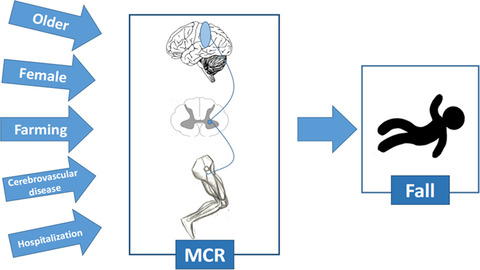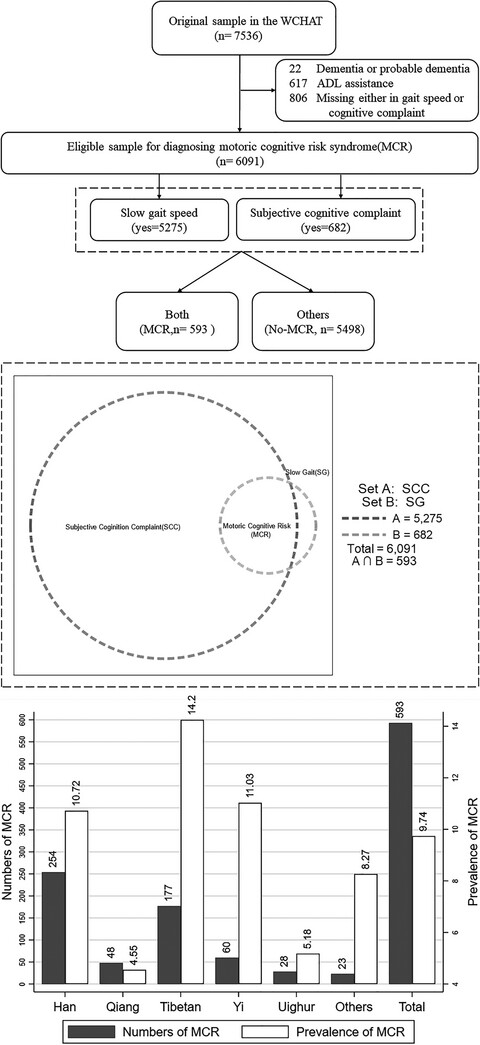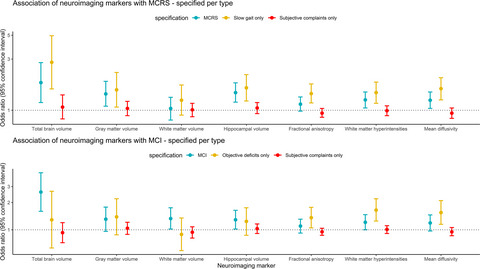Journal list menu
Export Citations
Download PDFs
Table of Contents
The association between olfactory bulb volume, cognitive dysfunction, physical disability and depression in multiple sclerosis
- First Published: 19 November 2015
The spectrum of pre-dementia stages: cognitive profile of motoric cognitive risk syndrome and relationship with mild cognitive impairment
- First Published: 16 June 2017
Motoric cognitive risk syndrome and incident dementia: results from a population-based prospective and observational cohort study
- First Published: 30 September 2019
Prevalence and factors associated with motoric cognitive risk syndrome in community-dwelling older Chinese: a cross-sectional study
- First Published: 17 April 2020
Non-memory subjective cognitive concerns predict incident motoric cognitive risk syndrome
- First Published: 22 April 2020
Risk factors for the progression of motoric cognitive risk syndrome to dementia: Retrospective cohort analysis of two populations
- First Published: 29 March 2021
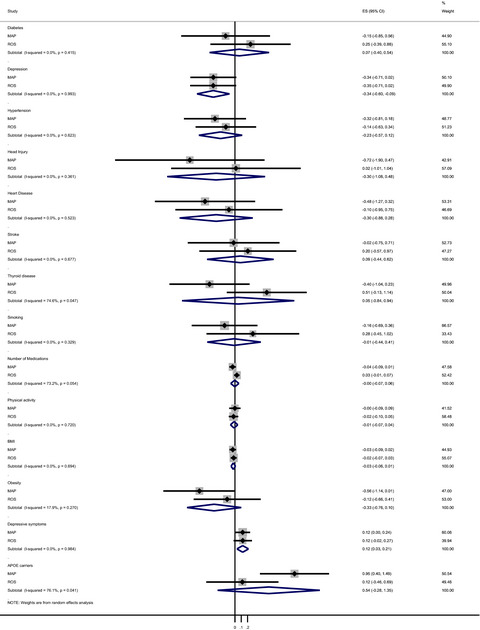
Motoric cognitive risk syndrome (MCR) is a predementia syndrome characterized by cognitive complaints and slow gait. Depressive symptoms, lower cognitive activity participation and presence of apolipoprotein E ε4 allele were identified as predictors of transition to dementia in MCR patients. These findings suggest common pathological mechanisms underlying mood, gait and cognitive declines in aging, which could help develop preventive strategies.
Physical and cognitive profiles in motoric cognitive risk syndrome in an older population from Southern Italy
- First Published: 26 April 2021
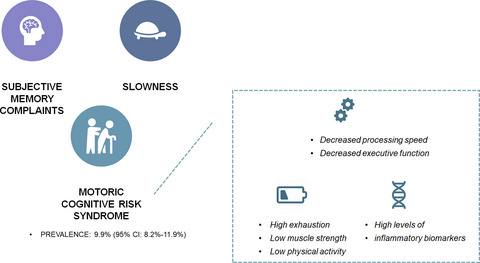
In a large non-demented older population-based sample, motoric cognitive risk syndrome (MCR) prevalence was 9.9% (95% confidence interval 8.2–11.9), without sex differences. MCR was associated with decreased processing speed and executive function but not with decreased global cognition and memory. MCR was related to higher exhaustion, low muscle strength, low physical activity and increased levels of inflammatory biomarkers.
Prevalence/potential risk factors for motoric cognitive risk and its relationship to falls in elderly Chinese people: a cross-sectional study
- First Published: 27 April 2021
Association between depression and motoric cognitive risk syndrome among community-dwelling older adults in China: A 4-year prospective cohort study
- First Published: 31 January 2022
The prevalence and associated factors of motoric cognitive risk syndrome in multiple ethnic middle-aged to older adults in west China: a cross-sectional study
- First Published: 19 January 2022
Risk factors, neuroimaging correlates and prognosis of the motoric cognitive risk syndrome: A population-based comparison with mild cognitive impairment
- First Published: 11 February 2022




